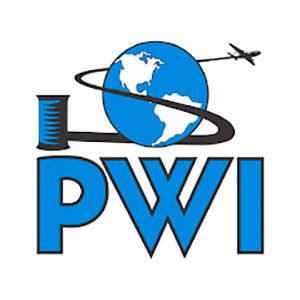
Biotek Shield Neutralizes Airborne COVID-19 Virus, Maintaining Virus-Free Cabin Air on Commercial Aircraft

PWI develops a virus-neutralizing system for use in fighting airborne contaminants aboard commercial aircraft. The device, called Biotek Shield, is designed to be installed in the air-conditioning system of the aircraft and uses UVC (ultraviolet) light technology to neutralize pathogens like bacteria and viruses, including H1N1, SARS, West Nile, tuberculosis and coronavirus.
“In order to get the world back to some sort of normalcy, the public needs to be safe travelling. We can now help stop the airborne spread of pathogens inside aircraft,” says Robi Lorik, president and CEO of PWI. “Since viruses are not alive, nothing will 'kill' a virus. But a virus can be rendered incapable of reproducing or infecting a host.”
UVC light has long been proven to neutralize the coronavirus and stop it from infecting others. PWI has contracted with a certified lab to test the effectiveness of Biotek Shield on neutralizing easily communicable contaminants.
“There are only a handful of BSL 3 or 'Biological Safety-Level 3' labs which are authorized to test on live viruses like COVID-19,” says Lorik. “These viruses can be very dangerous, so locating a lab certified to test with COVID-19 was a challenge in itself.”
Once testing is complete, the lab is expected to certify that the UVC light used in Biotek Shield will neutralize 99.9999% of virus cells, rendering the virus unable to replicate itself or infect humans. The EPA uses a logarithmic scale to measure the UVC light’s effectiveness in neutralizing pathogens like the coronavirus. The lowest on the scale is a log 1, which kills 90% of live bacteria but will not kill viruses as small as the coronavirus. The highest level is log 6, which kills 99.9999% of pathogens, including the coronavirus. The UVC used in Biotek Shield will use the most lethal — log 6 level — in negating the virus.
“Only a log 6 system will neutralize the pathogens, and that’s what we’re developing in our device. There are other systems available, but they do not have the efficacy that ours will,” says Lorik. “Other systems use topical wands or foggers that are far less effective and are one-time-only use, without continual sanitization. Not only is our system the strongest at log 6 level, but it also continuously cleans the cabin air, whether the plane is on the ground or in the air.”
The device will first be designed to fit the air-conditioning system of the Boeing 737 and then expand to other commercial aircraft. It will be STC/PMA-approved by the FAA.
The Biotek Shield, which is installed in the air-conditioning ductwork, operates silently and invisibly throughout the flight. When the aircraft is on the ground, the device will draw power from the aircraft’s auxiliary power unit. When the aircraft is in the air, the device will be powered by the plane’s engines. Biotek Shield creates no waste and only requires maintenance every 3 to 5 years.
“PWI has been designing and producing LED lighting for aircraft since 2012. It is an obvious step to take LED light from simply illuminating the cabin to cleaning the air. We have the knowledge and the experience with the FAA,” says Lorik. “We’re now ready to take it to the next level to address this worldwide problem with our lighting solution.”
Biotek Shield is the first in a planned line of products that effectively addresses the problem of airborne pathogens inside aircraft. The Biotek Shield UVC Treatment System will be developed by Aero Biotek Inc., a sister company to PWI Inc.
For more information about Aero Biotek or Biotek Shield, visit www.aerobiotek.com.
